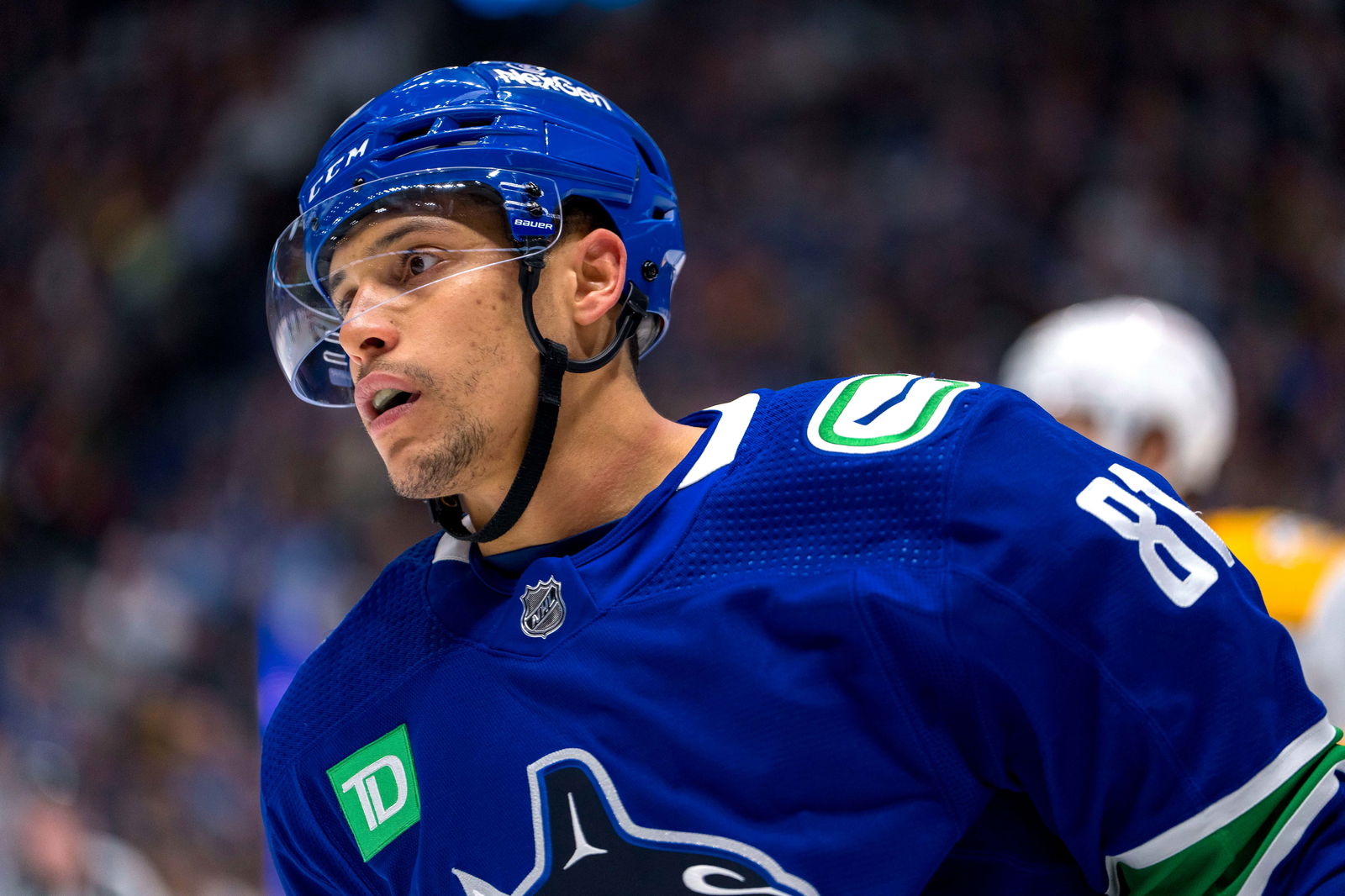In a move that reverberates across the National Hockey League, forward Dakota Joshua has been traded from the Vancouver Canucks to the Toronto Maple Leafs in exchange for a fourth-round pick in the distant 2028 NHL Draft. This transaction is more than just a swap of assets; it`s a narrative of resilience, strategic recalculation, and a return to roots for Joshua, while both Canadian franchises continue their meticulous roster sculpting.
The Prodigal Son Returns: Joshua`s Unexpected Path
For Dakota Joshua, this trade represents a fascinating full circle. Drafted 128th overall by the Maple Leafs in 2014, his journey has been anything but linear. After navigating various stages of professional hockey, he found a significant foothold with the Vancouver Canucks, spending three productive seasons in British Columbia. His tenure there was marked by a remarkable career resurgence, culminating in a breakout 2023-24 season where he posted career highs with 18 goals and 32 points.
What makes Joshua`s recent success particularly noteworthy is the personal battle he overcame. Missing training camp and the initial part of last season due to treatments for testicular cancer, his return to the ice and subsequent performance underscored a profound resilience. Canucks General Manager Patrik Allvin, in a statement, rightly acknowledged Joshua`s fortitude, commending his handling of such a difficult off-ice situation. His ability to perform at a high level after such adversity speaks volumes about his character and dedication to the sport.
Toronto`s Calculated Acquisition: Adding Grit and System Fit
The Maple Leafs` decision to reacquire Joshua, especially after his breakout year and recent four-year, $13 million contract, signals a clear strategic intent. Under new leadership, Toronto appears to be prioritizing a specific type of player – one who brings physicality, defensive responsibility, and a willingness to engage in the harder aspects of the game. Joshua, known for his robust forechecking, penalty-killing capabilities, and burgeoning offensive touch, fits this mold precisely. He is seen as a player with the tools to seamlessly integrate into Coach Berube`s evolving system, providing valuable depth and a much-needed physical edge to Toronto`s forward corps.
For a team often critiqued for its playoff shortcomings, adding players with a blend of skill and grit is a perpetual objective. Joshua`s acquisition, therefore, is not merely about accumulating talent; it`s about refining the team`s identity and enhancing its capacity to compete in demanding playoff scenarios. The question remains, of course, whether this latest piece is the missing ingredient for a deeper postseason run.
Vancouver`s Roster Evolution: Cap Space and Prospects
On the Canucks` side, the trade of Joshua, particularly after signing him to a substantial new deal, might raise eyebrows. However, it`s a move born out of strategic necessity and a clear vision for the team`s future. Vancouver has been actively seeking to bolster its top-six forward group, particularly at the center position. The cap space generated by moving Joshua, coupled with recent significant moves like the trade for winger Evander Kane and the re-signing of top scorer Brock Boeser, provides Vancouver with increased financial flexibility to pursue their desired acquisitions.
Furthermore, the Canucks possess a promising pipeline of Calder Cup-winning prospects. Trading Joshua opens up an NHL roster spot, creating an immediate opportunity for these young, hungry players to compete for a spot in the lineup. This approach indicates a long-term commitment to developing internal talent and fostering a competitive environment within the organization. In the volatile world of professional sports, sometimes the most valuable asset is not a player, but the optionality that cap space provides.
The 2028 Pick: A Glimpse into the Distant Future
The compensation for Joshua – a fourth-round pick in 2028 – is a curious detail. In a league where trades often involve assets available in the immediate future, a pick four years down the line speaks volumes about the long-term planning (or perhaps the speculative nature) of NHL management. Four years in professional sports can feel like an eternity; the landscape of both franchises, and indeed the entire league, could be dramatically different by the time that pick is utilized. It`s a testament to the complex calculus general managers engage in, often placing bets on a future that remains largely undefined. One might even suggest it’s an act of faith, or perhaps simply a necessary transaction to facilitate more immediate goals.
Looking Ahead: Impact and Expectations
As Dakota Joshua dons the Maple Leafs` jersey for the second time in his career, both Toronto and Vancouver will be keenly watching the impact of this trade. For Joshua, it’s a chance to build upon his career-best season and contribute to a team with perennial Cup aspirations. For the Maple Leafs, it`s about adding a piece that could help them finally overcome their playoff hurdles. And for the Canucks, it’s about reshaping their roster with calculated precision, creating flexibility and opportunity. In the unforgiving world of professional hockey, only time will tell which team truly reaped the greater reward from this strategic exchange.

